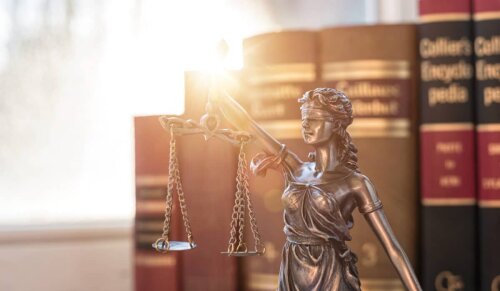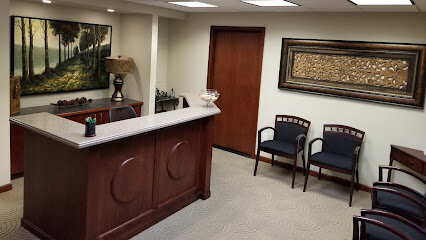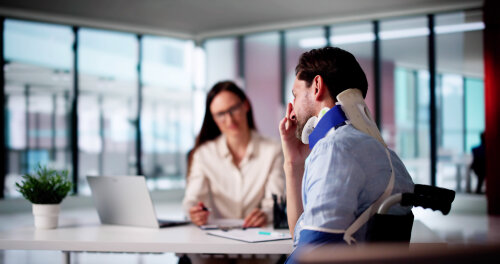Best Premises Liability Lawyers in Washington
Share your needs with us, get contacted by law firms.
Free. Takes 2 min.
Or refine your search by selecting a city:
List of the best lawyers in Washington, United States
About Premises Liability Law in Washington, United States
Premises liability law in Washington covers the responsibilities of property owners and occupiers to ensure that their premises are reasonably safe for visitors. When someone is injured on another person’s property due to unsafe or hazardous conditions, premises liability laws determine whether the property owner or occupier may be held legally responsible for those injuries. These laws apply to a wide range of properties, including private homes, businesses, public buildings, and rental properties. Common examples include slip-and-fall accidents, injuries caused by falling objects, or harm due to poor maintenance.
Why You May Need a Lawyer
Navigating premises liability claims can be complex, and several situations may require the assistance of a qualified lawyer. You might need legal help if you have been injured on someone else's property and believe negligence is involved, especially if:
- The property owner or their insurance company denies responsibility or offers a low settlement.
- The circumstances of the accident are unclear or disputed.
- Multiple parties might be liable, such as tenants and landlords.
- Your injuries are serious, leading to significant medical bills and lost income.
- The incident occurred on commercial or government property.
- You are facing long-term effects from your injury.
In these situations, a lawyer can investigate the incident, gather necessary evidence, negotiate with insurance companies, and, if necessary, pursue your claim in court to ensure fair compensation.
Local Laws Overview
Washington’s premises liability laws have specific features that are important for anyone involved in a claim:
- Duty of Care: Washington recognizes three categories of entrants: invitees (such as customers), licensees (social guests), and trespassers. Property owners owe the highest duty of care to invitees, moderate care to licensees, and minimal duty to trespassers.
- Comparative Fault: Washington follows a pure comparative fault rule. If the injured party is found partially at fault, their compensation is reduced by their percentage of fault but is not eliminated unless they are 100 percent responsible.
- Statute of Limitations: In most cases, you have three years from the date of the injury to file a premises liability lawsuit in Washington.
- Notice Requirement (for public property): Special notice procedures may apply if your claim is against a governmental entity, often requiring a written claim before you can sue.
- Attractive Nuisance Doctrine: Property owners might be liable if a child is injured by a hazardous item or condition on their property that could attract children.
Frequently Asked Questions
What is premises liability?
Premises liability refers to the legal responsibility that property owners and occupiers have to ensure their premises are safe for visitors and to prevent injuries from hazardous conditions.
Who can file a premises liability claim in Washington?
Anyone who suffers an injury on another person's property due to unsafe conditions and believes the owner or occupier was negligent may file a premises liability claim.
What types of accidents are covered by premises liability?
Common incidents include slip-and-falls, trip-and-falls, objects falling from shelves, inadequate maintenance, poor lighting, broken stairs, dog bites, and insufficient security on the premises.
How does comparative fault affect my premises liability case?
Under Washington's pure comparative fault rule, if you are partially at fault for your injury, your compensation may be reduced by your percentage of fault, but you are still entitled to recover damages unless you are fully at fault.
How long do I have to file a premises liability lawsuit in Washington?
Generally, you have three years from the date of the accident to file a lawsuit, but deadlines may differ for claims involving government entities.
Does the property owner always have liability for accidents?
Not always. Liability depends on whether the owner knew or should have known about the dangerous condition and failed to address it. The visitor’s status and actions are also considered.
Can a trespasser sue for injuries in Washington?
Though property owners owe minimal duty to trespassers, they cannot willfully or recklessly cause harm. However, different standards may apply for children under the attractive nuisance doctrine.
What should I do after an injury on someone else’s property?
You should seek medical attention, report the incident to the property owner or manager, document the scene with photographs, gather witness information, and consult a lawyer before speaking to insurance companies.
Can I recover damages if I was injured at a friend’s house?
Yes, you can file a claim with their homeowner's insurance if you were lawfully on the property and injured due to unsafe conditions. These claims do not necessarily mean suing your friend personally.
Do I need to prove the property owner knew about the hazard?
Generally, you must show the property owner knew or reasonably should have known about the dangerous condition and failed to fix it or warn you.
Additional Resources
If you need more information or help regarding premises liability in Washington, consider these resources:
- Washington State Bar Association - for lawyer referrals and legal education
- Washington Courts - for court forms, self-help, and information on the legal process
- Local legal aid organizations and volunteer lawyer programs
- Washington State Department of Labor and Industries - for workplace-related injuries
- Consumer Protection Division of the Washington Attorney General’s Office - for general public safety concerns
Next Steps
If you believe you have a premises liability claim in Washington, consider the following steps:
- Document everything related to your accident and injuries, including photos, witness statements, and medical records.
- Report your injury promptly to the property owner, business manager, or relevant authority.
- Do not discuss fault with property owners or insurance representatives until you have obtained legal advice.
- Consult with a qualified premises liability lawyer to evaluate your case, understand your rights, and formulate a plan for moving forward.
- Act quickly to preserve evidence and protect your right to file a claim within the statutory deadline.
Taking these steps can help ensure your interests are protected, maximize your chances of obtaining fair compensation, and reduce the stress of navigating the legal process on your own.
Lawzana helps you find the best lawyers and law firms in Washington through a curated and pre-screened list of qualified legal professionals. Our platform offers rankings and detailed profiles of attorneys and law firms, allowing you to compare based on practice areas, including Premises Liability, experience, and client feedback.
Each profile includes a description of the firm's areas of practice, client reviews, team members and partners, year of establishment, spoken languages, office locations, contact information, social media presence, and any published articles or resources. Most firms on our platform speak English and are experienced in both local and international legal matters.
Get a quote from top-rated law firms in Washington, United States — quickly, securely, and without unnecessary hassle.
Disclaimer:
The information provided on this page is for general informational purposes only and does not constitute legal advice. While we strive to ensure the accuracy and relevance of the content, legal information may change over time, and interpretations of the law can vary. You should always consult with a qualified legal professional for advice specific to your situation.
We disclaim all liability for actions taken or not taken based on the content of this page. If you believe any information is incorrect or outdated, please contact us, and we will review and update it where appropriate.
Browse premises liability law firms by city in Washington
Refine your search by selecting a city.











